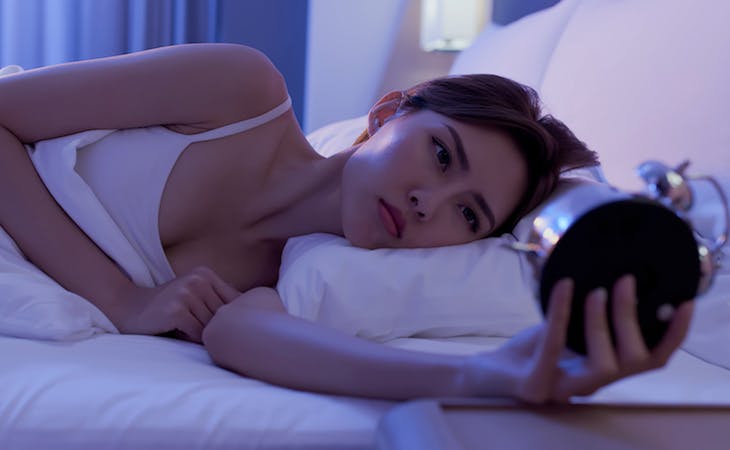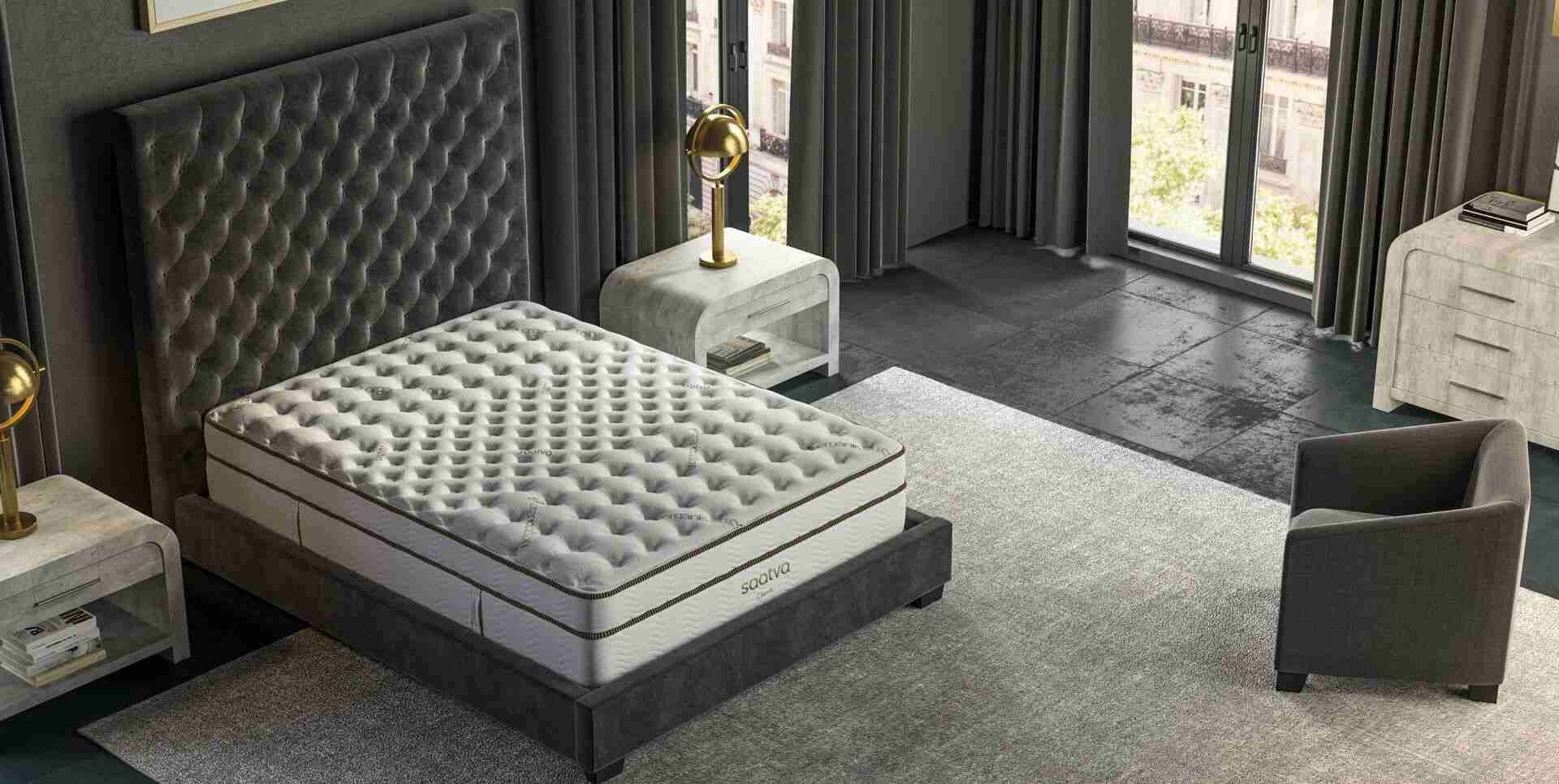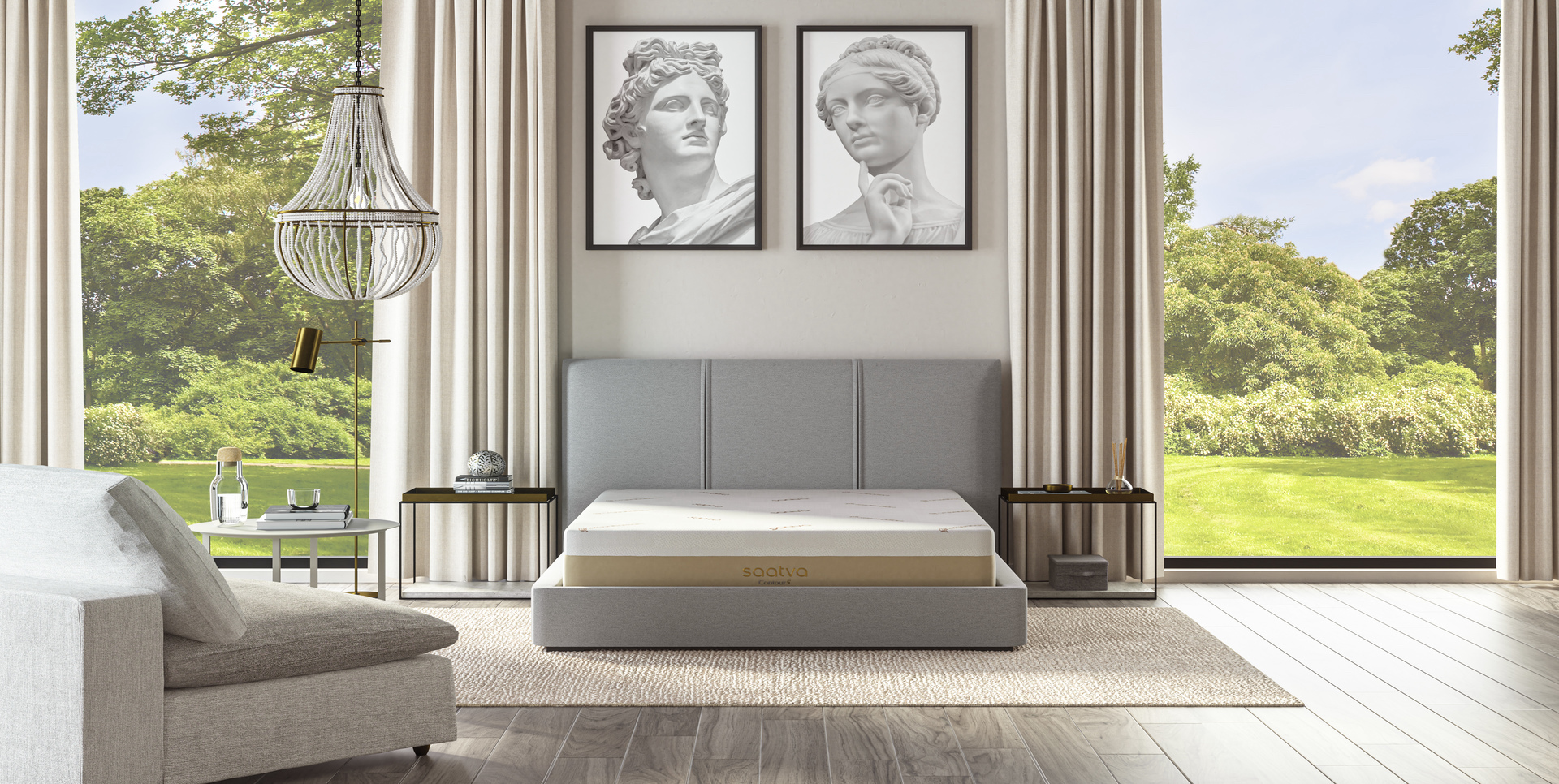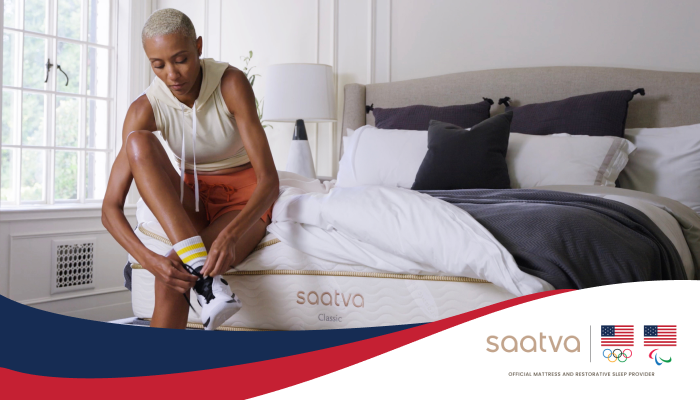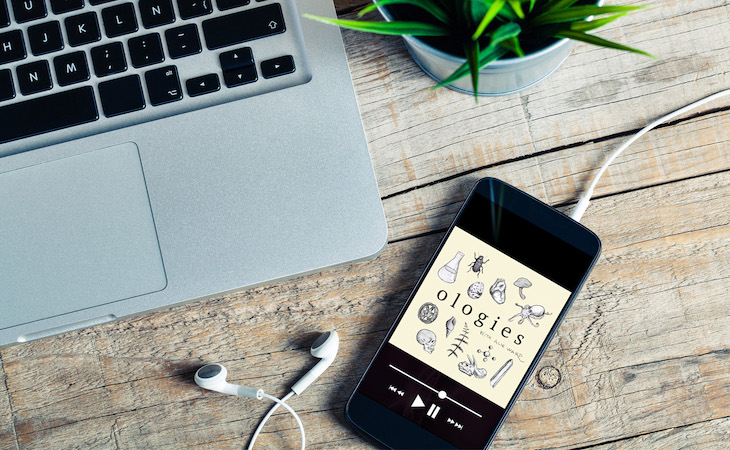We know the last year has been hard on sleep, as people struggle with the physical and mental stresses of the pandemic. We wanted to know more about what was keeping Americans up at night, so we asked them.
What keeps Americans awake at night?
We recently surveyed 2,000 Americans, and 41% said they’re up all night due to “next day anxiety,” fearing the uncertainty of what tomorrow will bring. What’s more, 62% of people said they struggle to fall asleep.
Anxiety about what will happen in the future isn’t the only thing disrupting people’s sleep, though. Here’s what else makes it difficult for Americans to snooze these days:
- Replaying the day’s events (37%)
- Being too hot or cold (31%)
- Too much caffeine (28%)
- Back pain (23%)
- Too much noise outside the room (17%)
- Joint pain (15%)
- A spouse or partner (14%)
- Heartburn (13%)
- Children (13%)

Other interesting sleep habits stats
Some more eye-opening sleep habit stats we learned from our research:
- On average, survey respondents said they wake up in the middle of the night a whopping five times a week—and 63% of people struggle to get back to sleep when this happens.
- In general, it takes Americans 27 minutes to fall asleep. More than a third (37%) can fall asleep in less than 15 minutes, but for 11% of people, it takes more than an hour.
- Half of Americans can’t get comfy in bed without a favorite pillow (54%) or favorite blanket (50%). More than one-third (38%) said their mattress makes them feel the most comfortable in bed, while 28% said it was their partner, kids, and pets. A smaller percentage of people (13%) said they need a stuffed animal to feel comfy.
- Dogs are more disruptive than cats when it comes to sleep, with 101 respondents blaming their dogs for keeping them up versus 77 respondents blaming their cats.
- The majority of people we surveyed (73%) have never been diagnosed with a sleep disorder—but a third of them have partners who insist they have one.
- Nearly eight in 10 people (78%) responded that they’ve had dreams that felt real, averaging nine vivid dreams per month. Some of the most common dreams people have include falling, flying, being chased, dying or having a near-death experience, having past friends or relatives pop up, or being back in school.
- Half of the survey participants said they’ve had more stress-related dreams this year than ever before. As for what’s causing these stress dreams, 36% said the global coronavirus pandemic and money issues are equally to blame, while 32% said the events of the day stressed them out.
How to sleep better, according to our survey respondents
So what can you do if you’re finding it difficult to get a good night’s sleep? Our survey respondents shared what helps them:
- More than one-third of people (38%) say they use an OTC medication such as melatonin to help them sleep, while 22% rely on herbal remedies or supplements.
- Beyond medication and supplements, 15% of survey participants said drinking a cup of tea soothes them before bed, while 14% said they use a meditation app on their phone. Meanwhile, 13% of people use a very traditional method of falling asleep—they count sheep.
- More than one-third of people (38%) also said flipping over the pillow helps them drift off, while 23% said surrounding themselves with pillows aids in getting them to sleep.
- Close to one-third of survey respondents (32%) said watching TV or keeping the TV on in the background helps them fall asleep, while 22% said reading a book gets them dozing off.
- Sometimes, a change of scenery helps: 22% of people said they get out of bed temporarily when they have trouble falling asleep.
Additionally, we asked respondents to tell us who they’d want to sing them a lullaby before bed. Here were the most popular choices:
- Beyoncé (22%)
- Their grandma (22%)
- Dolly Parton (21%)
- John Legend (21%)
- Ed Sheeran (20%)
A few respondents, meanwhile, said they’d like Taylor Swift, Eminem, Ariana Grande, Justin Bieber, The Beatles, or their partner, parent, or child to sing them a lullaby.
We also asked survey participants to tell us the most unusual places they’ve fallen asleep, and the responses ran the gamut from the pretty mundane to the really random. The most common answers: a car (203 respondents), a chair (120 respondents), a couch (83 respondents), and the floor (180 respondents). Some of the more out-there answers: a bathtub (7 respondents), a church service (15 respondents), and on the toilet (35 respondents).
Finally, we had people tell us where in the world they’d like to wake up the most. More than 400 respondents said they would like to wake up on a sunny, warm beach or island or at a tropical resort. Some people even named specific locations, like Bora Bora, Greece, The Bahamas, and Hawaii. After the year we’ve had, we could all certainly use a relaxing beach getaway.
Need helping getting your sleep back on track? Here’s how to prioritize sleep this year.

